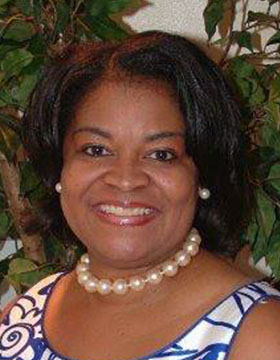Changing careers can be exciting, but a common challenge of many career changers is a lack of experience in the field they want to enter. Sure, they have transferrable skills, but without any direct experience career changers often struggle to demonstrate how their skillset is relevant to a desired job opportunity. Continue below for tips on how to rebrand your resume for a new career.
What Does the Employer Want?
A good place to start when writing a resume for a new industry is to consider the employer’s needs. Understanding this will help you craft a resume that answers three main things: what you did, how you did it, and what was the result. Refer to position descriptions on company websites and search for keywords and common themes. Also utilize career resources (such as ONETonline.org and the Occupational Outlook Handbook) to identify general qualifications. Explore company social media pages, external reviews on Glassdoor.com, and conduct informational interviews with current and former employees to find out about organizational culture and the types of candidates who find success.
Conduct a Skills and Knowledge Inventory
Review and assess your current skills and knowledge and identify any skills gaps you may need for your new field. Visit MySkillsMyFuture.org to further identify skills you could use to market yourself on your resume. You can type in your current or past job titles and click on “Compare Skills” under the Career Matches that come up for you. From here, check if you are missing any key qualifications and if they can be substituted with experience or education.
Choose the Best Resume Format
It’s important to tell the best story possible about your professional life. A combination resume or hybrid resume format allows you to feature relevant skills at the top followed by a detailed work history. You can also combine aspects of both a chronological and hybrid resumes. A benefit of doing this is you can highlight your transferrable skills and give the recruiter what they prefer, which is to see your work history listed in reverse chronological order.
Include a Key-Word Rich Summary
Putting a summary of qualifications on your resume is a way to highlight your most valuable, relevant attributes to the hiring manager. This summary should include relevant skills and accomplishments but should also take into consideration the limited time hiring managers spend reviewing the document. The goal is to capture the attention of the reviewer and prompt them to read on. A well-written summary describes in relation to the position title or role. It should concisely showcase your key qualifications and attributes in no more than one or two sentences, or several bullet points.
Focus on Achievements, Numbers, and Metrics
Provide quantifiable information if possible (for example: “Managed a team of 6” or “Exceeded standards by 35%”). Concentrate on skills, accomplishments, and results rather than duties. For example: Completed sales transactions vs. Provide courteous, efficient, and accurate service in completing customer transactions. Remove bullets that are mundane or do not demonstrate benefit to the employer. Begin statements with a strong action verb. Be focused, concise, and action or accomplishment oriented. Write strong accomplishment statements that effectively describe your work experience.
List Education Before Experience
If you’re concerned about lacking experience in your desired field, consider putting your “Education” section ahead of your “Experience” section. Be sure to add relevant, detailed bullet points to show the recruiter your skills. This section should demonstrate what you can do, so avoid including information not relevant to the position.
To obtain instant resume feedback use our free tools, VMock, available through CareerQuest and Resunate. As always, keep in mind that UMGC Career Services is available to help you plan and achieve career success. Set up an appointment with a UMGC Career Advising Specialist.
Rhoda Smackum is a manager in Career Services and Alumni Relations at University of Maryland Global Campus. She has approximately 28,000 hours of work experience in the field of career development. Ms. Smackum enjoys working collaboratively, in partnership with students and alumni to identify career issues, match values with career choices and obtain meaningful work. She holds a Master of Arts degree from Bowie State University and a Bachelor of General Studies degree from the University of Maryland College Park. She is a Certified Master of Career Services (CMCS) and an Associate Certified Career Coach.


Share This